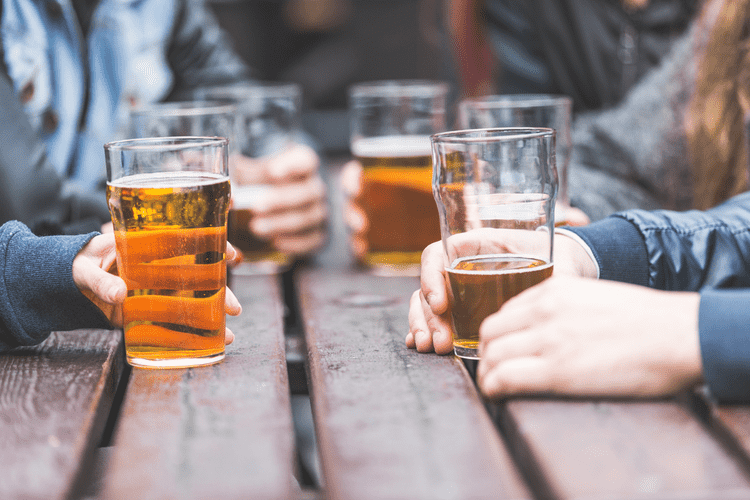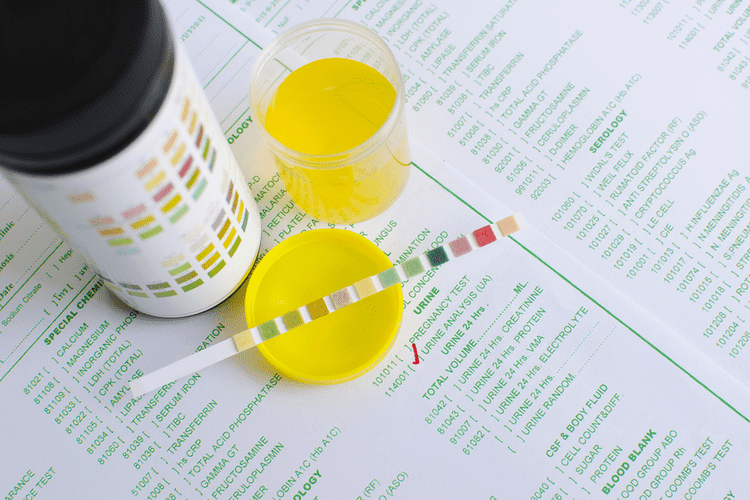Alcohol Dependence
Content
While intoxication can reduce sleep onset, it can disrupt sleep during the later part of the night. With chronic use of alcohol, the sedative effects appear to diminish, while disruption to the later sleep alcohol dependence signs phases increases. Increased wakefulness and restlessness is related to daytime sleepiness. Withdrawal from alcohol also disrupts sleep patterns, most notably through a rebound of rapid eye movement sleep.
Continuing to drink even though your alcohol use is causing problems in your relationships. Getting drunk with your buddies, for example, even though you know your wife will be very upset, or fighting with your family because they dislike how you act when you drink.
Alcohol Abuse
Submit your number to receive a judgement-free call today with one of our compassionate rehab specialists. If you’re ready to live a healthy, sober lifestyle, help is available. Take effects of alcohol your life back by getting started in a treatment program today. While there is no exact formula to determining whether or not someone is an alcoholic, symptoms often co-occur.
BrainsWay Announces Publication of Deep TMS™ Trial Results – GlobeNewswire
BrainsWay Announces Publication of Deep TMS™ Trial Results.
Posted: Thu, 09 Dec 2021 12:30:00 GMT [source]
Disease with early onset evolves more rapidly than that with onset later in life. Because of this, considerable emphasis has been placed on the harm of alcohol use in adolescence. The hope has been that delaying alcohol use would reduce the risk for rapid development of alcoholism. It is certainly desirable to refrain from alcohol use while the brain is still developing and the individual has not achieved a mature capacity for assessing and handling the risks involved in alcohol use.
Psychological Effects
It is the incapacity to quit drinking and is the most severe form of alcohol addiction. Also known as alcoholism, the individual is mentally and physically dependent on alcohol and feels that he must drink just to carry on. The terms “alcohol abuse” and “alcoholism” are often used interchangeably. Both connote a problem with drinking and negative impacts on day-to-day life from alcohol consumption. But there are subtle yet important distinctions between these two terms. If you’re suffering from alcohol dependence, then you’ll likely experience withdrawal symptoms if you try to stop drinking.

It’s common for people with a mental health disorder such as anxiety, depression, schizophrenia or bipolar disorder to have problems with alcohol or other substances. Have mental health issues, such as grief, anxiety, depression, eating disorders and post-traumatic stress disorder.
Pregnant Women And Alcohol
However, progression is more rapid, and females usually enter treatment earlier than males. Women more commonly combine alcohol with prescription drugs of abuse than do males.

Don’t hide or dump bottles or try to shelter your loved one from situations where alcohol is present. Avoid emotional appeals that only add to the problem drinker’s feelings of guilt and increase their compulsion to drink or use other drugs. Call your country’s emergency services number (911 in the U.S.) and wait with them for medical help to arrive.
Recognizing The Signs Of Teen Substance Abuse
If your drinking is causing problems in your life, then you have a drinking problem. Editorial StaffThe editorial staff of American Addiction Centers is made up of credentialed clinical reviewers with hands-on experience in or expert knowledge of addiction treatment. News-Medical.Net provides this medical information service in accordance with these terms and conditions. Please note that medical information found on this website is designed to support, not to replace the relationship between patient and physician/doctor and the medical advice they may provide. Dependency cannot be easily identified as persons tend to hide their weakness for alcohol. A few visible symptoms are however reliable pointers to this disease.

Today, the APA classifies substance use disorders as mild, moderate, or severe. It doesn’t use the terms abuse and dependence to categorize the severity of an addiction.
Schizoaffective Disorder Treatment: Coping Strategies
But anyone can experience its effects, such as illness, vomiting, or hangovers. You experience intense cravings to drink alcohol, and find yourself unable to stop drinking even when you want to. Although it is best to consult with a medical professional for expert advice, you can do a quick self-check. Ask yourself whether you have any of the symptoms listed above and see how many apply to your life. Neglecting personal, professional, or educational responsibilities as the result of your drinking. WebMD Connect to Care helps you find services to manage your health.

The need for a medically supervised detox depends, in part, on the length of time of alcohol abuse and usual volume of consumption. In some cases, alcohol withdrawal can present heightened risks and even lead to fatality. Individuals who are at risk for withdrawal effects require supervised medical detox. As a result, it is recommended that anyone seeking to detox from alcohol consult a medical professional first. Excessive alcohol use is responsible for 88,000 deaths in the U.S. each year , and cost the U.S. $223.5 billion in 2006. Alcohol abuse refers to drinking “too much, too often.” It affects a person’s work, and family and social life, and yet the person continues with it. There is repeated drinking at the workplace or while driving, and so it becomes a physical hazard.
What Are The Dangers Of Too Much Alcohol?
You’re spending less time on activities that used to be important to you because of your alcohol use. The UK Chief Medical Officers’ guidelines suggest 14 pints a week as the safe level of consumption, with each drink containing roughly 14 grams of pure alcohol. A brief, self-administered questionnaire sometimes utilised in individual or group treatments.
- In contrast, about 1 in 30 adults is classified as alcohol dependent.
- For most adults, moderate alcohol use is probably not harmful.
- If you have alcoholism and a history of withdrawal symptoms, see a doctor before quitting.
- Rethinking Drinking – Tools to help you check your drinking patterns, identify signs of a problem, and cut back.
- While intoxication can reduce sleep onset, it can disrupt sleep during the later part of the night.
When alcohol abuse is a problem, it creates difficulties in the drinker’s daily life – health problems, legal issues, money troubles, and so on – but it does not lead to physical addiction. Alcohol addiction is a problem characterized by a physical and psychological addiction to alcohol that controls the drinker’s every decision and behaviour. All of these problems can be addressed in an alcohol treatment centre. At this point, an individual may develop a serious disease, such as cirrhosis of the liver.
Safe Drinking
While “alcoholism” and “alcohol dependence” are seen as outdated terms by some, alcohol misuse can still be a problem that needs to be addressed through proper treatment. That depends on cultural norms; it is considered acceptable and normal in some cultures to have one or more drinks daily. From a physiologic standpoint, how one tolerates alcohol depends on gender, size, frequency of use, and other factors such as how one’s body processes alcohol.
Other medications can help you quit drinking by blocking the feeling of intoxication or making you feel sick when alcohol enters your body. If you have alcoholism and a history of withdrawal symptoms, see a doctor before quitting. You should also see a doctor before quitting alcohol if you have other health conditions. Your doctor may ask you about drinking habits and health history. Concerned family and friends often try and help the person realize their drinking is out of control, although they might not believe it.
All of the information on this page has been reviewed and verified by a certified addiction professional. Addiction encompasses both a mental and physical reliance on a given substance. Have a confidential, completely free conversation with a treatment provider about your financial options. If you have any of these symptoms, your drinking may already be a cause for concern.
